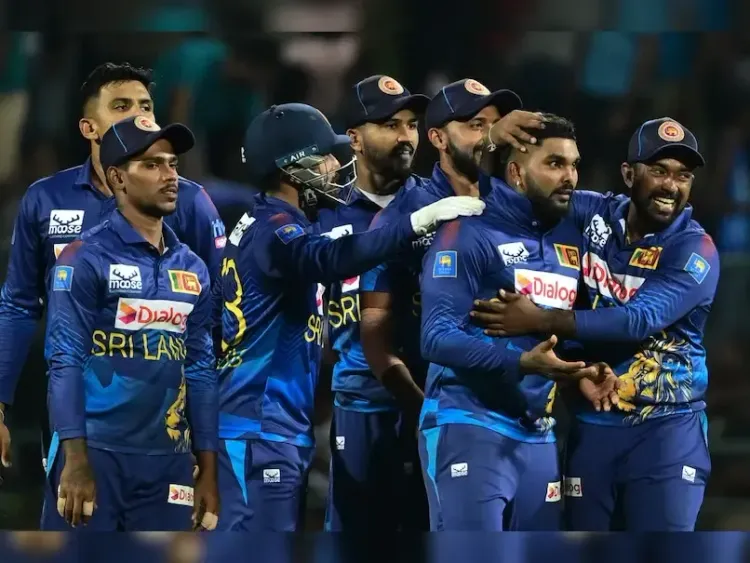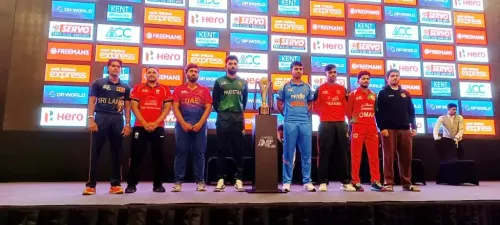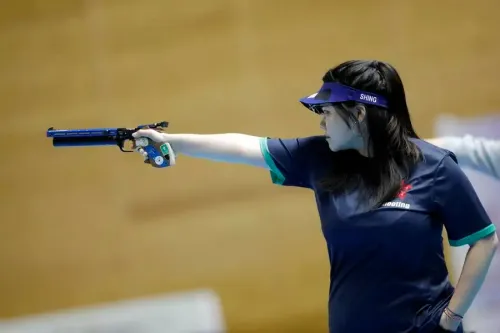What Do Vaas and Lakmal Recall About the 2009 Lahore Terror Attack as Current Squad Faces Security Concerns?

Synopsis
Key Takeaways
- Former cricketers reflect on their traumatic experiences.
- The current squad faces similar security threats.
- Players emphasize the need for mental resilience.
- The impact of past traumas on present athletes.
- The necessity of supportive environments for players.
Mumbai, Nov 13 (NationPress) Two former Sri Lankan cricketers, who experienced the 2009 Lahore terror attack, have cautioned the current squad, who are grappling with security apprehensions after a suicide bombing in Islamabad, that resuming normalcy will be a formidable challenge following their initial thoughts of heading home.
Describing their harrowing experience during the terror attack on the team bus in 2009 as a “devastating moment”, Sri Lanka's legendary pace bowler Chaminda Vaas and all-rounder Suranga Lakmal urged the players to remain resilient and vigilant, according to a report released on Thursday.
In 2009, Sri Lanka’s team bus was ambushed with intense gunfire en route to the third day of the Lahore Test, resulting in injuries to several players and an umpire. Tragically, numerous policemen assigned for the team's protection lost their lives in this attack. The tour was subsequently called off, with the shaken squad airlifted from an army base back to Colombo, and Pakistan found itself unable to host international cricket for nearly a decade.
This week, the current Sri Lankan team was left shaken after a suicide bombing occurred in Islamabad — merely 25 kilometers from their accommodations — resulting in 12 fatalities. Initially, the players sought to abandon the tour, but after receiving assurances from the Pakistani government, many chose to remain. Still, eight senior players stood firm, prompting the Sri Lanka Cricket (SLC) to prepare replacements.
Following a lengthy night of discussions, all players ultimately decided to stay, leading the Pakistan Cricket Board to reorganize fixtures and relocate matches from Lahore to Rawalpindi.
Members of the 2009 squad recounted their experiences with Telecom Asia Sport, expressing a sense of unsettling familiarity. For veteran seamer Chaminda Vaas, the memories remain vivid.
“Reflecting on it, we are all thankful that the situation wasn’t worse,” Vaas shared with Telecom Asia Sport (www.telecomasia.net). “However, for the current players, the mental challenge will be significant. Safety is always a lingering concern in your mind,” he remarked on Thursday.
He noted that the short journey from hotel to ground — usually filled with camaraderie and team banter — transforms into “the most tense moment”.
Many in Sri Lanka advocate for the team to continue their tour, recalling how a composite India–Pakistan XI visited Colombo before the 1996 World Cup when Australia and West Indies opted out, the report indicated.
“Pakistan has been a supportive ally, without a doubt,” Vaas remarked in the report. “There is concern that if Sri Lanka withdraws, it may deter other teams from touring there again. It’s a sensitive matter — it requires a careful approach.”
While Vaas was nearing the end of his career in 2009, for Suranga Lakmal, it was his first overseas tour — an experience that has left enduring scars. “The memories of that day still haunt me,” Lakmal, now residing in Australia, told Telecom Asia Sport (www.telecomasia.net).
Shrapnel lodged in his legs delayed necessary surgery, with doctors warning he could miss months of cricket. Lakmal continued to bowl for Sri Lanka, later for Derbyshire in county cricket, and now in Australian leagues — but the consequences have been significant. “As a result, I can’t undergo MRI scans, and airport security always delays me due to the metal detectors,” he explained. “I travel with numerous medical certificates,” Lakmal shared from Australia.
Lakmal mentioned he declined an opportunity to tour Pakistan in 2017. “My decision was final. It’s incredibly challenging to concentrate on cricket after such an incident. Your thoughts are consumed by your family and loved ones.”









